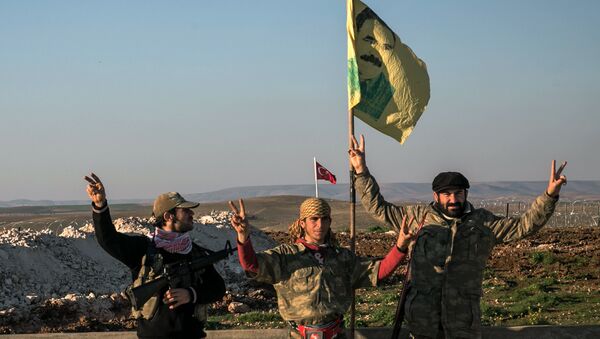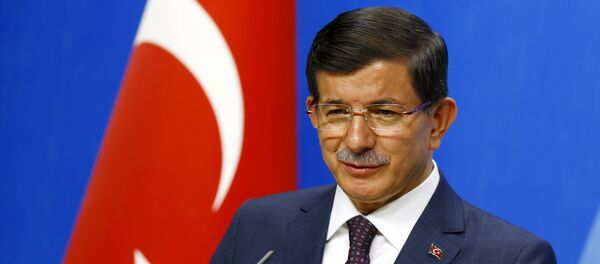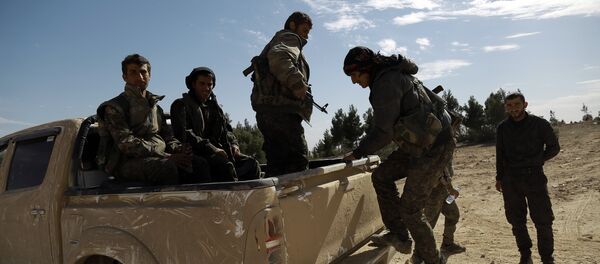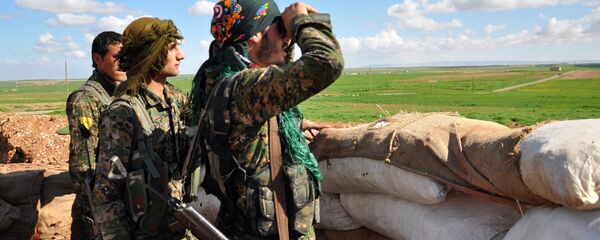As the Syrian war gains momentum, the US-led coalition appears to be pushing rebels to fight against not only Daesh but with each other indicating a serious decline in US foreign policy objectives.
This week Furqa al-Sultan Murad, the CIA-backed rebel battalion, was under attack by Kurdish militants or YPG, supported by the Pentagon in Syria's Aleppo.
"It's very strange, and I cannot understand it," said Ahmed Othman, the commander of Furqa al-Sultan Murad. He said he was in regular contact with his American handlers about the problems on the ground.
"The Americans must stop [the YPG] — they must tell them you are attacking groups that we support just like we support you," Othman said. "But they are just watching. I don't understand U.S. politics."
The US appears to be failing to control its own rebels.
"That is a major problem," said Andrew Tabler, a Syria2 specialist at the Washington Institute for Near East Policy. "It's not just that it's a nonsense policy. It's that we're losing influence so rapidly to the Russians that people just aren't listening to us anymore."
The Turkish official agreed to speak on condition of anonymity condemned the US for the failed Syria policy.
"The YPG is taking land and villages from groups that are getting American aid," he said. "These are groups that are not only getting American aid. Some of them also got training from the Americans."
A State Department official conceded the US has got an issue with its proxies in Syria that could overall lead the country to a big fail in its attempts to fight Daesh.
"We've expressed to all parties that recent provocative moves in northern Syria, which have only served to heighten tensions and lessen the focus on [ISIS], are counterproductive and undermine our collective, cooperative efforts in northern Syria to degrade and defeat [ISIS]," the official who spoke anonymously told BuzzFeed.
Considering the recent engagements, the US's chances of setting up a crucial Arab force to fight Daesh in Syria appears to be close to zero, according to Andrew J. Tabler of the Washington Institute.
"If this continues, the U.S. is only going to have one option it can work with, which is the YPG. It's not going to have the Arab option," he said. "Which would be fine if the Kurds were the majority of the Syrian population, but they're not. We need Sunni Arabs to defeat ISIS."




